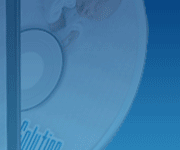
As the mother of three girls, I never had to make a decision about circumcision, but I remember discussing it at length with my husband. Our pediatrician had told us that the most important thing is for sons to "match" their fathers. I was also being told that most baby boys did not need the procedure unless they had an abnormally long foreskin. We really agonized about it until we found that the baby was a girl!
Several years ago, when I was still working in a large hospital here, I proposed a study on the use of music and lullabies for the procedure. To my amazement, many nurses were against it. Apparently I wasn't the first person to think of this idea:
SINGING TAKES STING OUT OF PAIN FOR BABIES
INDIANAPOLIS - Lullabies can do more than put babies to sleep, say researchers at the
IU School of Nursing at IUPUI; they actually can help relieve pain.
Nursing professors Juanita Keck, Betsy Joyce and Janis Gerkensmeyer have completed a small study of 40 babies showing that newborns that listened to music during circumcision and blood sampling had significantly less pain by the end of the procedure. The neonates also maintained a steady heart rate throughout the circumcision procedure, and the degree to which their blood was able to carry oxygen also was significantly better for those babies who listened to music.
The researchers chose lullabies timed to a heartbeat - music that is tolerable to medical practitioners and pleasant to babies - to play throughout the procedure.
Keck says that playing music during surgical procedures is a non-invasive and cost-effective tool that is easy to implement. The challenge, she feels, is convincing health-care providers that the music really is effective.
"If we can describe physically how it works, then this intervention could become much more widely used," said Keck.
To achieve that goal, the three nursing researchers are seeking funding to expand their study to a larger scale.








